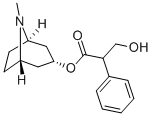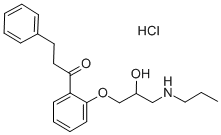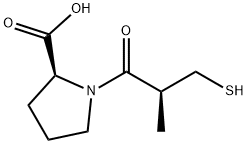protamine sulfate
Synonym(s):Protamine sulfate;Salmine sulfate;Salmine sulfate from salmon sperm
- CAS NO.:98001-69-5
- Molecular Weight: 0
- Update Date: 2025-01-27 09:38:02
What is protamine sulfate?
The Uses of protamine sulfate
Protamine sulfate has been used in the transduction of
- lentiviruses into human embryonic 293T cells
- shRNA into mesenchymal stem cells/marrow stromal cells (MSC)
- lenti Sca1-OCT4 plasmid into human cord blood hematopoietic progenitor CD34+ cells
The Uses of protamine sulfate
Antidote (to heparin).
General Description
Protamine sulfate has an anticoagulanteffect, but if used in the proper amount, it counteractsthe action of heparin and is used as an antidote for thelatter in cases of overdosage. It is administered intravenouslyin a dose that depends on the circumstances.
Biochem/physiol Actions
Alkaline protamine binds to negatively charged heparin. Use of protamine during cardiovascular surgery sometime triggers anaphylactic reactions.
Veterinary Drugs and Treatments
Protamine is used in all species for the treatment of heparin overdosage when significant bleeding occurs. While protamine will neutralize the anti-thrombin effects of low molecular weight heparins (e.g., dalteparin or enoxaparin), it does not completely inhibit their anti-Xa activity. Laboratory animal studies however, shows it does improve microvascular bleeding associated with LMWH overdoses. Protamine has been suggested for use for Bracken Fern toxicity in ruminants (see Doses).
Properties of protamine sulfate
| storage temp. | 2-8°C |
Safety information for protamine sulfate
Computed Descriptors for protamine sulfate
New Products
4,4-Difluoropiperidine hydrochloride tert-butyl 9-methoxy-3-azaspiro[5.5]undecane-3-carboxylate Indole Methyl Resin N-Isopropylurea N,N-Dicyclohexylcarbodiimide(DCC) MELDRUMS ACID 5-METHYLISOXAZOLE-4-CARBOXYLIC ACID Magnessium Bis glycinate Zinc ascorbate 1-bromo-2-butyne 2-acetamidophenol 9(10H)-anthracenone Erythrosin B, 4-Piperidinopiperidine 2-((4-morpholinophenylamino) (methylthio) methylene) malononitrile 2,4-dihydroxybenzaldehyde 3-(4-morpholinophenylamino)-5-amino-1H-pyrazole-4-carbonitrile Methyl 2-methylquinoline-6-carboxylate 2,6-dichloro-4-nitropyridine 4-Bromo-2-chlorobenzonitrile 2-(benzylamino)acetic acid hydrochloride 4-(tert-Butoxycarbonylamino)but- 2-ynoic acid 3,4-dihydro-2H-benzo[b][1,4]dioxepine 1-Phenyl-1-cycloprppanecarboxylicacidRelated products of tetrahydrofuran
You may like
-
 Protamine sulfate CASView Details
Protamine sulfate CASView Details -
 3-(4-amino-1-oxoisoindolin-2-yl)-1-methylpiperidine-2,6-dione 98%View Details
3-(4-amino-1-oxoisoindolin-2-yl)-1-methylpiperidine-2,6-dione 98%View Details -
 614-19-7 98%View Details
614-19-7 98%View Details
614-19-7 -
 3112-85-4 Methyl phenyl sulfone 98%View Details
3112-85-4 Methyl phenyl sulfone 98%View Details
3112-85-4 -
 20677-73-0 (2,2-diethoxyethyl)methylamine 98%View Details
20677-73-0 (2,2-diethoxyethyl)methylamine 98%View Details
20677-73-0 -
 3-(4-(hydroxyamino)-1-oxoisoindolin-2-yl)piperidine-2,6-dione 98%View Details
3-(4-(hydroxyamino)-1-oxoisoindolin-2-yl)piperidine-2,6-dione 98%View Details -
 57381-49-4 2-bromo-4-chlorobenzonitrile 98%View Details
57381-49-4 2-bromo-4-chlorobenzonitrile 98%View Details
57381-49-4 -
 4,6-dichloropyrimidine-5-carbaldehyde 98%View Details
4,6-dichloropyrimidine-5-carbaldehyde 98%View Details
5305-40-8





